Tommy AnderssonDrug Metabolism and Pharmacokinetics, Cardiovascular and Metabolic Diseases, AstraZeneca, Gothenburg Tommy B. Andersson is a Senior Principal Scientist at Cardiovascular and Metabolic Disease, DMPK, AstraZeneca R&D Gothenburg. He is also a visiting professor at the Karolinska institute, department of Physiology and Pharmacology, section of pharmacogenetics. He has over 20 years scientific, management and project experience within the pharmaceutical industry and academia covering drug metabolism, dispositon and pharmacokinetics in projects from early drug discovery to life cycle management. Recently attanetion has been paid to stem cell technology and organotypic microphysiological systems and its applications in drug discovery. He is the author of 158 peer reviewed scientific publications. |
Moran BercoviciAssociate Professor, Faculty of Mechanical Engineering; Head, Technion Microfluidic Technologies Laboratory, Technion, Israel Institute of Technology Moran Bercovici is an Associate Professor of Mechanical Engineering and Biomedical Engineering at Technion – Israel Institute of Technology. His lab combines experimental, analytical, and computational tools to study problems characterized by coupling between fluid mechanics, heat transfer, electric fields, chemical reactions, and biological processes. He is equally interested in understanding basic physical mechanisms and in leveraging them to create new tools and technologies across different disciplines. His current focus areas are in rapid prototyping, adaptive optics, microscale flow control, configurable microstructures, and lab-on-chip systems. Moran holds a PhD in Aeronautics and Astronautics from Stanford University, worked as postdoctoral fellow at Stanford School of Medicine, and was a Harrington Faculty Fellow at the University of Texas at Austin. He authored and co-authored over 50 articles in top peer-reviewed journals, is the inventor of more than 20 patents, and is the recipient of several awards including the EU ERC Starting Grant, and the Blavatnik Prize – considered one of the most prestigious awards to young scientists in Israel. |
Martyn BoutelleProfessor of Biomedical Sensors Engineering, Imperial College London Martyn Boutelle is Professor of Biomedical Sensors Engineering in the Department of Bioengineering, Imperial College London, and Associate Provost for Estates Planning for Imperial College. |
Andries D. van der MeerAssociate Professor, Scientific lead, Organ-on-Chip Center Twente, University of Twente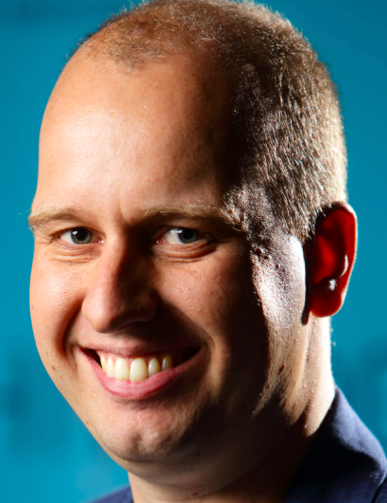 Dr. Andries D. van der Meer is Associate Professor at the Faculty of Science and Technology of the University of Twente, The Netherlands. He is leader of the research theme ‘Organs-on-Chips’ in the Applied Stem Cell Technologies group of the Bioengineering Technologies cluster, supervising five Ph.D. candidates and coordinating multiple research projects on the development of blood vessels-on-chips as well as their integration in full organ-on-chip systems like the retina-on-chip, lung-on-chip and heart-on-chip. |
Olivier GuenatHead, Organs-on-Chip Technologies, ARTORG Center for Biomedical Engineering Research, University of Bern-Switzerland Olivier T. Guenat is the Head of the Organs-on-Chip Technologies Group at the ARTORG Center at the University of Bern in Switzerland. He is associated with the Pulmonary Medicine and the Thoracic Surgery Divisions of the University Hospital of Bern. His research focuses on the development of organs-on-chip, in particular lung-on-chips that mimic the healthy and diseased in-vivo cellular microenvironments of the lung. Prior to his position at the University of Bern, he held a position at the Swiss Center for Electronics and Microelectronics (CSEM), at the Ecole Polytechnique de Montréal (QC, Canada), before which he performed a post-doc at Harvard Medical School in Boston and at the University of Neuchâtel in Switzerland. He is the founder of AlveoliX, a biotech start-up that aims at bringing organs-on-chip on the market, for which he recently received the Ypsomed and the Venturekick Awards. |
Geraldine A HamiltonPresident/Chief Scientific Officer, Emulate Inc Dr. Hamilton's career spans academic research, large Pharma, and biotech start-ups, with over 10 years’ experience in the pharmaceutical industry. In all three arenas, Dr. Hamilton's work has focused on the development of new human-relevant cell-based models and their application to drug discovery. This pursuit brought Dr. Hamilton to Harvard's Wyss Institute, where as a Lead Senior Staff Scientist she directed the extensive Organs-on-Chips project. This project was successfully spun-out from the Wyss Institute to form Emulate, Inc., where Dr. Hamilton now serves as President and Chief Scientific Officer. At Emulate, Dr. Hamilton continues her work to further develop Organs-on-Chips technology as well as to drive and facilitate its adoption in commercial use. Prior to joining the Wyss Institute and Emulate, Dr. Hamilton was one of the founding scientists of the biotech start-up CellzDirect, where she was the VP of Scientific Operations and Director of Cell Products. CellzDirect successfully translated and commercialized technology from academic research to supply the pharmaceutical industry with hepatic cell products and services for safety assessment and drug-metabolism studies. Hamilton received her Ph.D. in cell biology/toxicology from the University of Hertfordshire (England) in conjunction with GlaxoSmithKline, followed by a post-doctoral research fellowship at the University of North Carolina. She has led in vitro toxicology and drug metabolism teams in GlaxoSmithKline and AstraZeneca. Her current research interests and scientific experience include: bioinspired engineering, toxicology and drug metabolism, liver cell biology, mechanisms regulating gene expression and differentiation, regulation of nuclear receptors and transcriptional activation in hepatocytes by xenobiotics, human cell isolation and cryopreservation techniques. |
James HickmanProfessor, Nanoscience Technology, Chemistry, Biomolecular Science and Electrical Engineering, University of Central Florida; Chief Scientist, Hesperos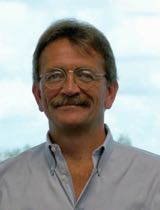 James J. Hickman is the Founding Director of the NanoScience Technology Center and a Professor of Nanoscience Technology, Chemistry, Biomolecular Science, Biomedical Engineering, Material Science and Electrical Engineering at the University of Central Florida. Previously, he held the position of the Hunter Endowed Chair in the Bioengineering Department at Clemson University. Dr. Hickman has a Ph.D. from the Massachusetts Institute of Technology in Chemistry. For the past thirty years, he has been studying the interaction of biological species with modified surfaces, first in industry and in the latter years in academia. While in industry he established one of the first bioelectronics labs in the country that focused on cell-based sensors and their integration with electronic devices and MEMS devices. He is interested in creating hybrid systems for biosensor and biological computation applications and the creation of functional in vitro systems for human body-on-a-chip applications. He has worked at NSF and DARPA in the area of biological computation. He is also the founder and current Chief Scientist of a biotechnology company, Hesperos, that is focusing on cell-based systems for drug discovery and toxicity. He has 166 publications and 20 book chapters, in addition to 34 issued patents out of 50 total patent applications. He was elected to the Board of Directors of the American Institute for Medical and Biological Engineering (AIMBE) for 2 consecutive terms, the premier society for Biomedical Engineering of which he is a Fellow. He is also a Fellow of the American Vacuum Society (AVS) and National Academy of Inventors (NAI) as well as BioFlorida’s Researcher of the Year (2022). Dr. Hickman along with Dr. Michael Shuler, won the Lush Prize, in the Science Category, which Supports Animal Free Testing in 2015. |
Noo Li JeonProfessor, Seoul National University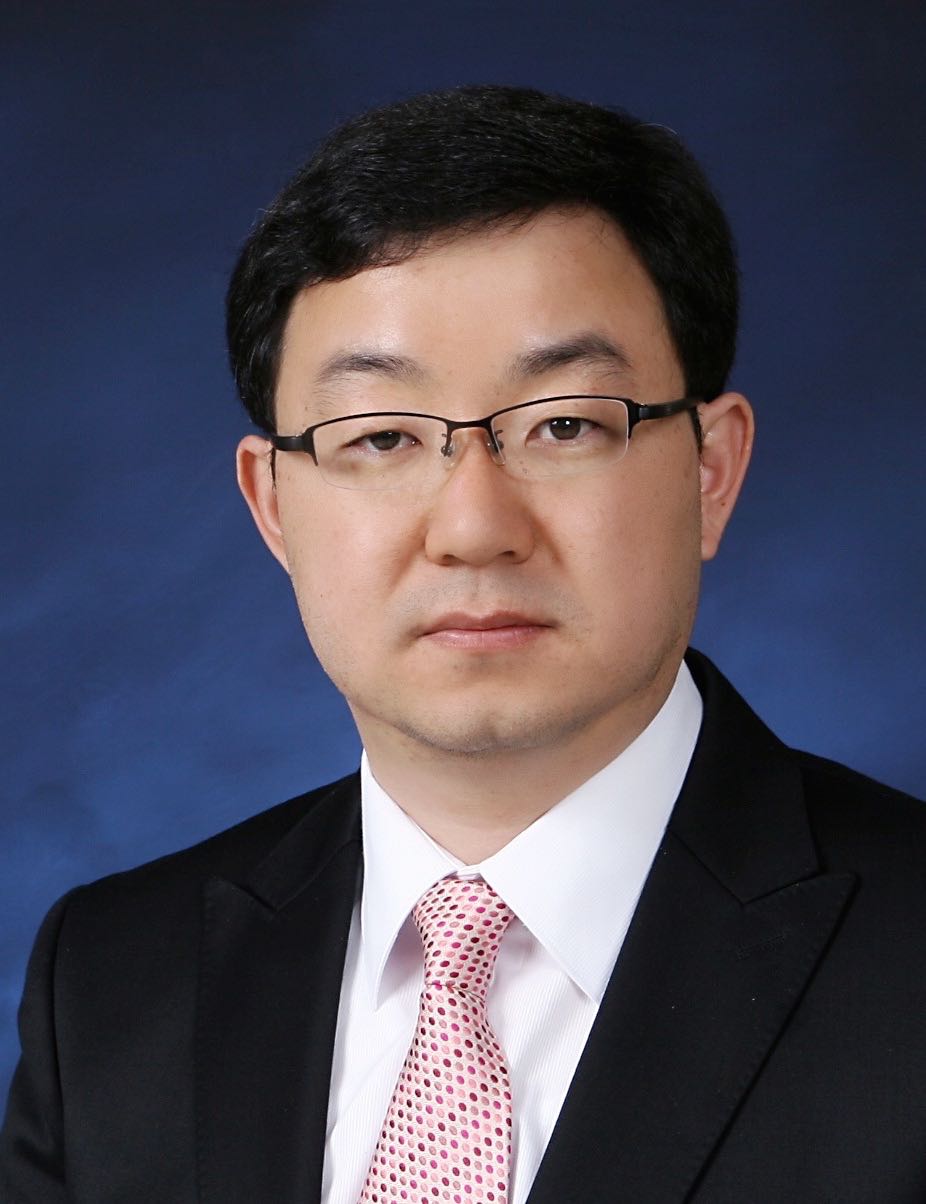 Noo Li Jeon is a Professor of School of Mechanical and Aerospace Engineering at Seoul National University (SNU). He studied Materials Science and Engineering at Northwestern University (B.S.) and University of Illinois Urbana-Champagne (Ph.D.). He worked on soft lithography applications in Prof G.M. Whitesides’ laboratory at Harvard University and at Prof M. Toner’s group at Harvard Medical School. He was an Associate Professor at UC Irvine from 2001-2009 in the Department of Biomedical Engineering. In 2009, he moved to Seoul National University to join School of Mechanical Engineering at Seoul National University. |
Roger KammCecil and Ida Green Distinguished Professor of Biological and Mechanical Engineering, Massachusetts Institute of Technology (MIT) Kamm is currently the Cecil and Ida Green Distinguished Professor of Biological and Mechanical Engineering at MIT, where he has served on the faculty since 1978. Kamm has long been instrumental in developing research activities at the interface of biology and mechanics, formerly in cell and molecular mechanics, and now in engineered living systems. Current interests are in developing models of healthy and diseased organ function using microfluidic technologies, with a focus on vascularization. Kamm has fostered biomechanics as Chair of the US National Committee on Biomechanics (2006-2009) and of the World Council on Biomechanics (2006-2010). Kamm currently directs the NSF Science and Technology Center on Emergent Behaviors of Integrated Cellular Systems. He is the 2010 recipient of the ASME Lissner Medal (American Society of Mechanical Engineering) and the 2015 recipient of the Huiskes Medal (European Society of Biomechanics), both for lifetime achievements, and is the inaugural recipient of the ASME Nerem Medal for mentoring and education. He was elected to the National Academy of Medicine in 2010. Kamm is co-founder of two companies, Cardiovascular Technologies and AIM Biotech, a manufacturer of microfluidic systems for 3D culture. |
Amy ShenProfessor and Provost, Okinawa Institute of Science and Technology Graduate University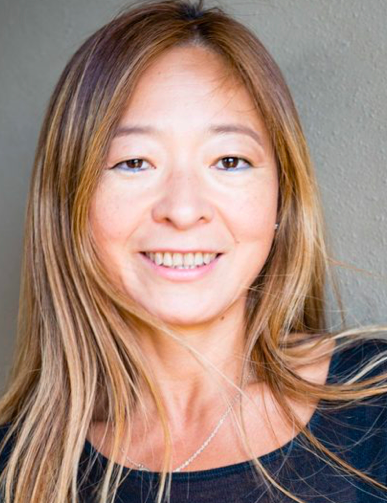 Amy Shen is the provost and professor at Okinawa Institute of Science and Technology Graduate University (OIST) in Japan, leading the Micro/Bio/Nanofluidics Unit. Amy's research is focused on microfluidics and lab-on-a-chip devices at the bio/nano-interface, with applications in biotechnology. She is a Fellow of the American Physical Society, the Royal Society of Chemistry, and Society of Rheology. Amy was also a Fulbright Scholar in 2013. She is an associate editor for Soft Matter and serves on the editorial advisory board for ACS Sensors, Journal of Rheology, and Physics of Fluids. |
Steve SoperFoundation Distinguished Professor, Director, Center of BioModular Multi-Scale System for Precision Medicine, The University of Kansas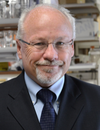 Prof. Soper is currently a Foundation Distinguished Professor in Chemistry and Mechanical Engineering at the University of Kansas, Lawrence. Prof. Soper also holds an appointment at Ulsan National Institute of Science and Technology in Ulsan, South Korea, where he is a World Class University Professor. He is also serving as a Science Advisor for a number of major worldwide companies. Prof. Soper is currently on the Editorial Board for Scientific Reports and Journal of Micro- and Nanosystems. |
Danilo TagleDirector, Office of Special Initiatives, National Center for Advancing Translational Sciences at the NIH (NCATS)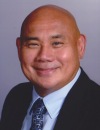 Dan Tagle is Director of the Office of Special Initiatives at NCATS where he many coordinates efforts towards development of disruptive technologies in translational research. He obtained his Ph.D. in Molecular Biology and Genetics from Wayne State University School of Medicine. He was an NIH National Research Service Award postdoctoral fellow in Human Genetics at the University of Michigan. He has served on numerous committees, advisory boards, and editorial boards. He has authored many scientific publications and has garnered numerous awards, including more recently the Roscoe O. Brady Award for Innovation and Accomplishment, and the Henry J. Heimlich Award for Innovative Medicine. |
Shoji TakeuchiProfessor, Center For International Research on Integrative Biomedical Systems (CIBiS), Institute of Industrial Science, The University of Tokyo Shoji Takeuchi received the B.E, M.E., and Dr. Eng. degrees in mechanical engineering from the University of Tokyo, Tokyo, Japan, in 1995, 1997, and 2000, respectively. He is currently a Professor in the Center for International Research on Integrative Biomedical Systems (CIBiS), Institute of Industrial Science (IIS), University of Tokyo. Since 2008, he is a director of Collaborative Research Center for Bio/Nano Hybrid Process at IIS. His current research interests include membrane protein chips, bottom-up tissue engineering and biohybrid MEMS. He received several awards including Young Scientists' Prize, the Commendation for Science and Technology by the Minister of Education, Culture, Sports, Science and Technology in 2008, the JSPS prize from the Japan Society for the Promotion of Science in 2010. |
Gregory TimpKeough-Hesburgh Professor of Electrical Engineering & Systems Biology, The University of Notre Dame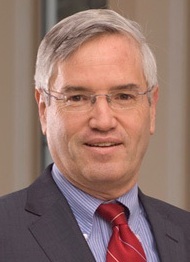 Gregory Louis Timp received his Ph.D. from the Massachusetts Institute of Technology in 1986 working with Mildred Dresselhaus. After a post-doc at IBM with Alan Fowler, he joined Bell Laboratories in 1988, where he engaged in research on nanostructure physics. In 2010, he joined the faculty of Notre Dame to pursue nano-biotechnology with an appointment jointly in Biological Sciences and Electrical Engineering. He is the Keough-Hesburgh professor of Engineering and Systems Biology. He is a Fellow of the American Association for the Advancement of Science; a Fellow of the American Physical Society; and a Fellow of the Institute of Electrical and Electronic Engineers. He has published over 150 articles in scientific journals and holds 10 patents. |
George TruskeyR. Eugene and Susie E. Goodson Professor of Biomedical Engineering, Duke University George Truskey is the R. Eugene and Susie E. Goodson Professor and Senior Associate Dean for Research in the Pratt School of Engineering. Dr. Truskey's research interests include cardiovascular tissue engineering, microphysiological systems, and the mechanisms of atherogenesis. He also studies cell adhesion and cell biomechanics, for which he focuses upon the effect of flow on endothelial cell adhesion to synthetic surfaces and monocyte adhesion to endothelium. He received a PhD degree in 1985 from MIT. He has been a faculty member in the Department of Biomedical Engineering at Duke since 1987. From 2003-2011, he was Chair of the Department of Biomedical Engineering at Duke University. He is the author of over 110 peer-reviewed research publications, a biomedical engineering textbook entitled Transport Phenomena in Biological Systems, six book chapters, over 180 research abstracts and presentations, 1 patent and 2 patent applications. He is a Fellow of the Biomedical Engineering Society (BMES), the American Institute of Medical and Biological Engineering, and the American Heart Association. He was president of BMES from 2008 to 2010. He received the Capers and Marion McDonald Award for Excellence in Mentoring and Advising from the Pratt School of Engineering at Duke (2007) and the BMES Distinguished Service Award (2012). |
Elisabeth VerpoorteChair of Analytical Chemistry and Pharmaceutical Analysis, University of Groningen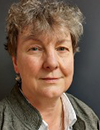 E.M.J. (Sabeth) Verpoorte has more than 30 years of research experience in the microfluidics or lab-on-a-chip field. Her introduction to this technology came in 1990, after her PhD with D. Jed Harrison at the University of Alberta, when she started as a postdoctoral researcher to the pioneering µTAS group headed by Professor Andreas Manz at Ciba Ltd., Basel, Switzerland. In 2003, Sabeth made a strategic switch to assume a Chair in the Groningen Research Institute of Pharmacy, making a foray into a new research environment dominated by cells, tissue and drug development. Projects have involved the development of organ-on-a-chip systems to study drug metabolism (liver chip, gut chip), diagnose endothelial dysfunction and monitor liver tissue function. Efforts have also concentrated on continuous-flow particle separation strategies, paper microfluidics, as well as miniaturized analytical instrumentation (paper spray ionization, multidimensional chromatography). The acquisition of interdisciplinary projects involving scientists from the life sciences, chemistry, and physics disciplines continues to be a driving force in her research. |




